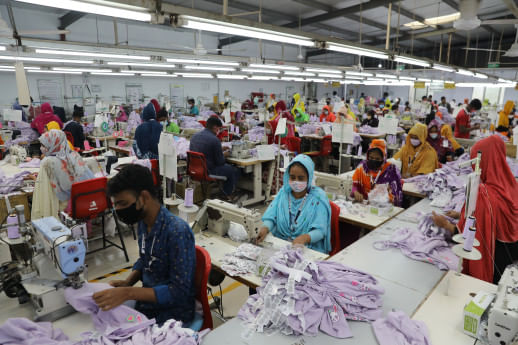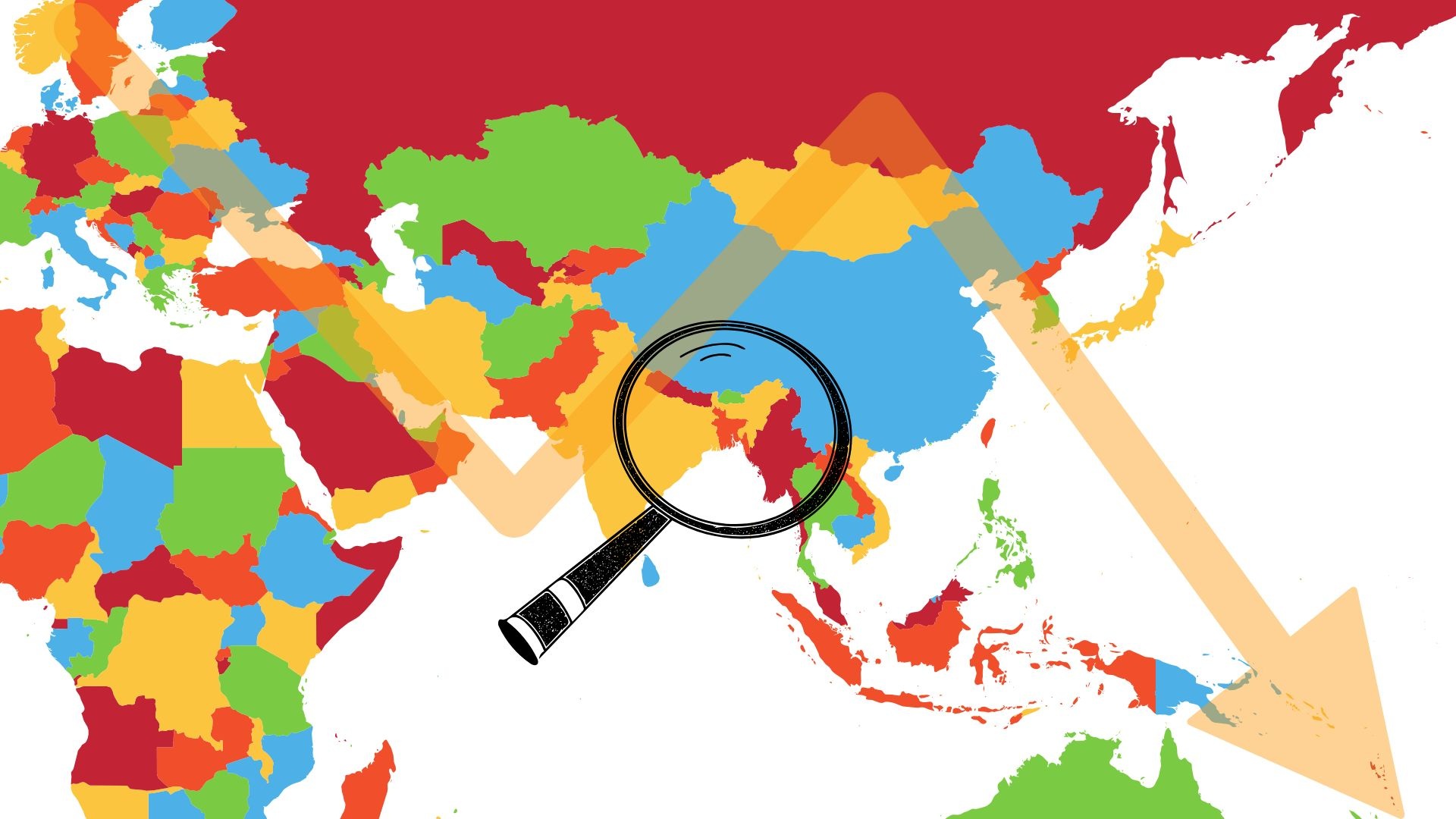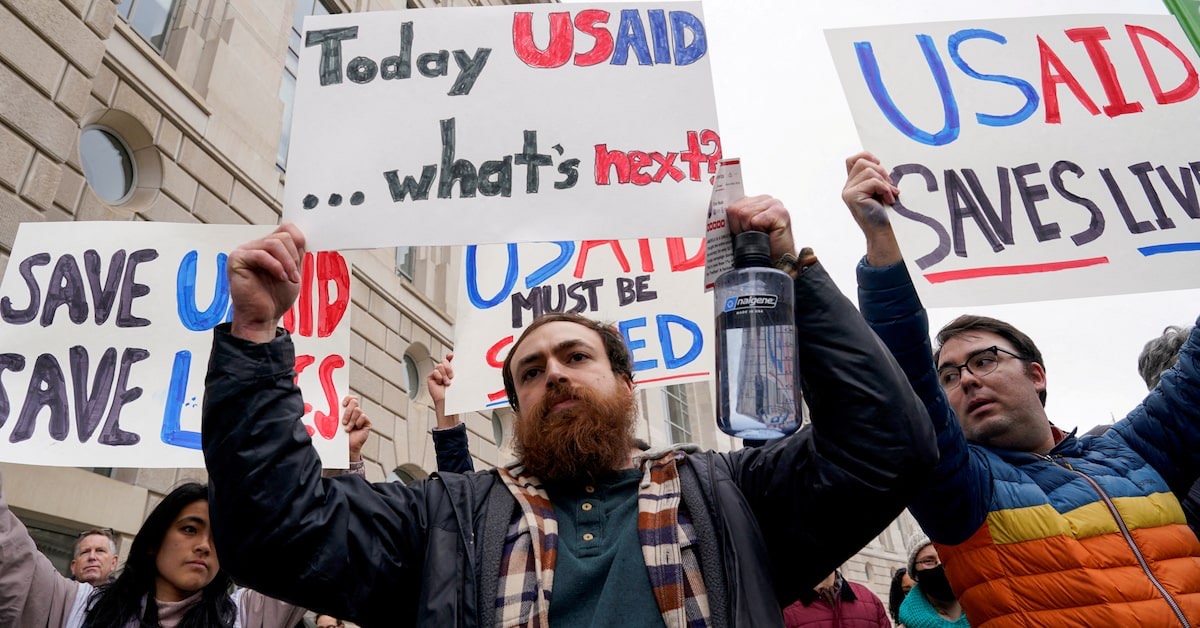Trump’s ‘reciprocal tariffs’ and the impending risk for Bangladesh

US President Donald Trump has once again stirred the global trade landscape with his latest announcement on February 13, unveiling plans to impose "reciprocal tariffs" on US trading partners. His declaration—"Whatever countries charge the United States of America, we will charge them"—signals a new phase of economic protectionism that could have wide-ranging consequences. While the move is primarily targeted at China, other major economies, including the European Union, India, and Mexico, are also likely to face trade pressures. This policy shift has already triggered concerns among global financial markets, with stock indices reacting to potential disruptions in trade flows. Additionally, several trade analysts argue that such tariffs could escalate trade disputes, leading to retaliatory measures that might further strain international economic relations.
For Bangladesh, the warning signs are evident. In 2023, the US had trade deficits of at least $1 billion with 48 countries, with China leading the list at $279 billion, followed by Mexico at $152 billion and Vietnam at $104 billion. The trade deficit with India was around $43.5 billion, ranking the country at the 11th position. Bangladesh, ranked 25th, had a trade surplus of over $6 billion with the US. While this is a relatively modest figure compared to larger economies, the country's export dependence on the US makes it vulnerable to any potential tariff hikes.
Among these 48 countries, Bangladesh and Cambodia are the only two least developed countries (LDCs). Cambodia, already facing some US sanctions and with a trade surplus exceeding $11 billion, is a likely easy target for additional tariffs. Though Bangladesh does not currently enjoy duty-free privileges in the US market—with the Generalised System of Preferences (GSP) being suspended in 2013 following the Rana Plaza disaster—its anticipated graduation from the LDC status by 2026 places it at further risk. Any adverse tariff action could significantly impact Bangladesh's exports, particularly in the ready-made garment (RMG) sector, which is the backbone of the economy.
The RMG sector accounts for more than 80 percent of Bangladesh's total exports, with the US being one of its largest markets. A tariff increase on apparel exports from Bangladesh could result in higher costs for US buyers, potentially leading to reduced orders and shifting sourcing patterns. Given the already competitive nature of the global apparel industry, US importers may opt for alternative suppliers in countries that benefit from preferential trade agreements, thereby threatening Bangladesh's market share.
Beyond RMG, some other manufacturing and emerging sectors are also at risk. Industries such as leather, footwear, and pharmaceuticals have increasingly relied on US markets. Any tariff hikes could slow down their expansion and make them less competitive compared to other exporters with lower trade barriers. For example, Bangladesh's pharmaceutical exports, which have shown promising growth in recent years, may face setbacks if additional duties are imposed, limiting access to the lucrative US market.
Furthermore, foreign direct investment (FDI) and trade partnerships may suffer due to the uncertainty surrounding US trade policies. Investors seeking stable trade environments may reconsider expanding their operations in Bangladesh, particularly in export-oriented industries. As global supply chains evolve to adapt to new trade barriers, Bangladesh may struggle to maintain its competitive edge. This could have long-term implications for job creation and industrial growth, as multinational corporations seek out alternative investment destinations with more predictable trade relations.
In light of these developments, policymakers in Bangladesh must act swiftly to mitigate potential trade risks. Three key measures should be prioritised. First, a data-driven risk assessment is crucial to identifying the precise impact of potential tariffs. Conducting an in-depth analysis at the six-digit Harmonised System (HS) code level will help pinpoint the product categories most vulnerable to tariff hikes. Businesses and policymakers must work together to strategise alternative market access and explore avenues for cost reduction. This assessment should be conducted in collaboration with industry associations and trade experts to ensure a comprehensive strategy.
Second, diplomatic engagement is an essential tool. Active and meaningful dialogue with US policymakers, trade representatives, and stakeholders is necessary. Both the Bangladeshi mission in Washington, DC, and the US diplomatic presence in Dhaka should proactively engage with their counterparts to preempt and negotiate any unfavourable trade measures. Furthermore, leveraging regional trade alliances and organisations, such as the World Trade Organization (WTO), could provide additional avenues for advocacy. Strengthening ties with other key trade partners could also help diversify Bangladesh's export destinations.
Third, strengthening economic resilience through structural reforms in taxation, trade policy, and industrial strategy is essential. Bangladesh must accelerate efforts to expand its export base beyond the RMG sector to reduce vulnerabilities to external shocks. Special emphasis should be placed on enhancing productivity and competitiveness in non-RMG industries, encouraging investment in high-value manufacturing and services, and improving trade logistics to ensure seamless business operations.
The global trade environment is becoming increasingly uncertain, and Bangladesh cannot afford to be complacent. The government must adopt a proactive and strategic approach to navigate the looming challenges posed by Trump's "reciprocal tariffs" policy. A well-coordinated response involving the government, trade bodies, and the private sector is essential to ensure that Bangladesh remains competitive in the global market. As the US policy direction unfolds in the coming months, Bangladesh must stay agile and prepared to safeguard its economic interests.
Dr Selim Raihan is professor in the Department of Economics at the University of Dhaka and executive director of the South Asian Network on Economic Modeling (SANEM). He can be reached at selim.raihan@econdu.ac.bd.
Views expressed in this article are the author's own.
We welcome your contributions and analysis of global events, and responses to our articles. To submit articles to Geopolitical Insights, please send an email to dsgeopoliticalinsights@gmail.com.
Follow The Daily Star Opinion on Facebook for the latest opinions, commentaries, and analyses by experts and professionals. To contribute your article or letter to The Daily Star Opinion, see our guidelines for submission.




 For all latest news, follow The Daily Star's Google News channel.
For all latest news, follow The Daily Star's Google News channel. 


Comments